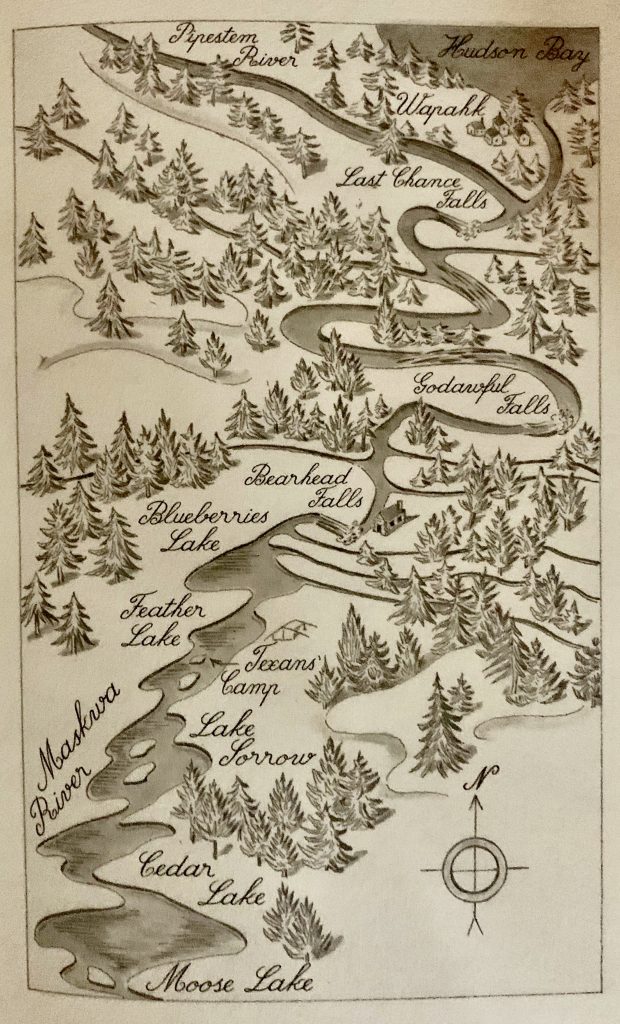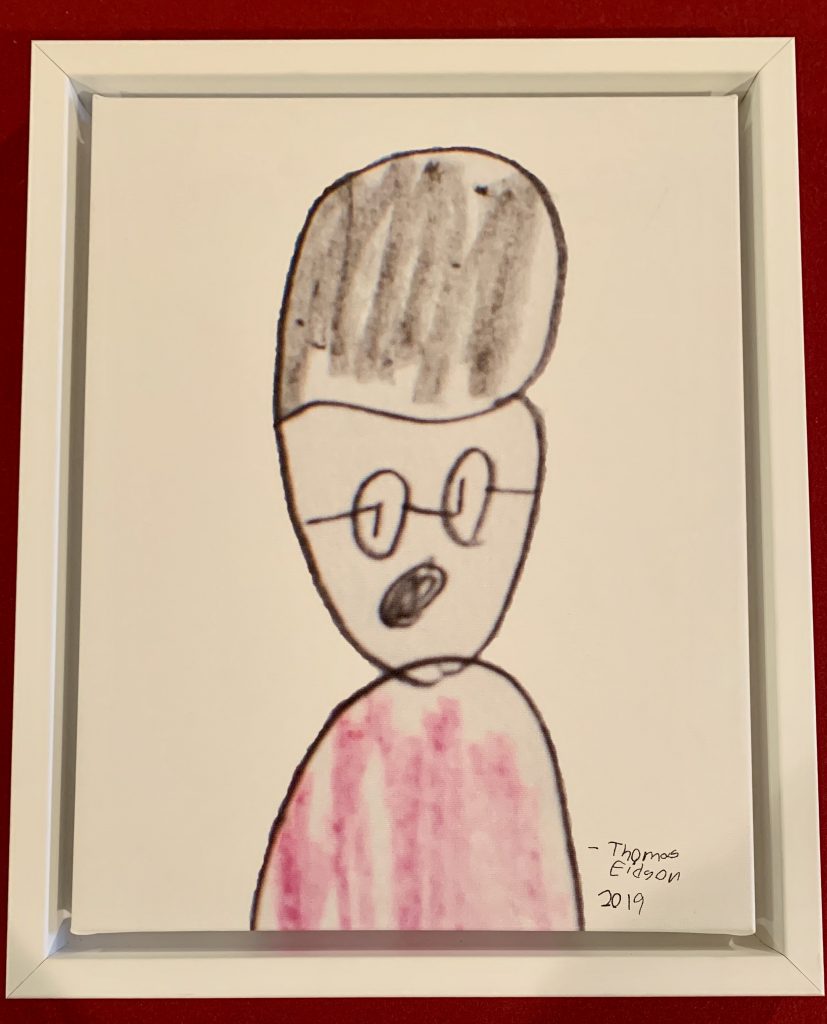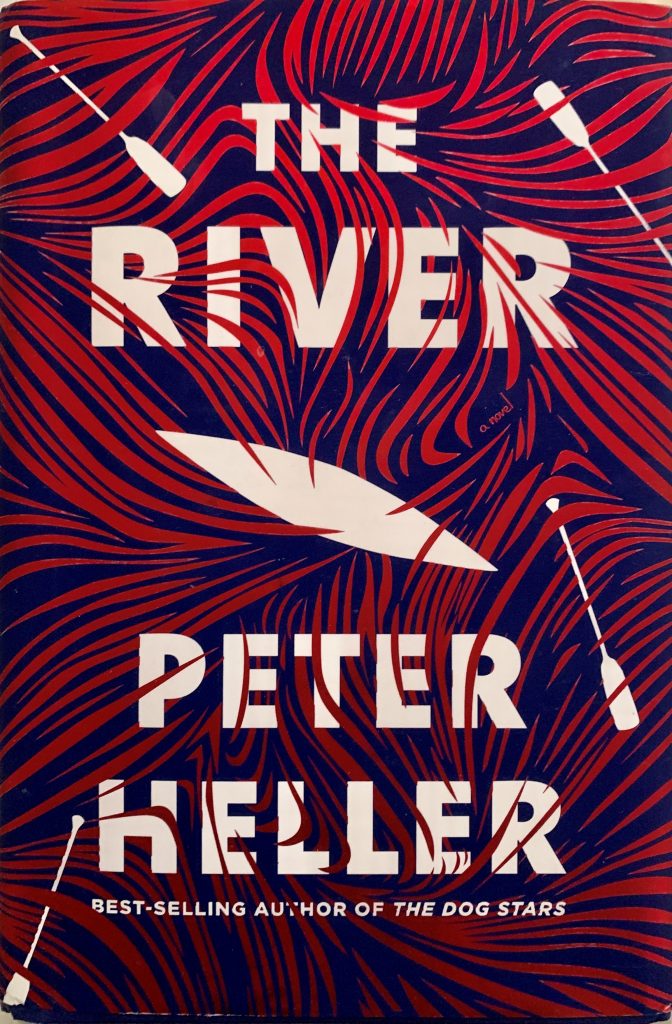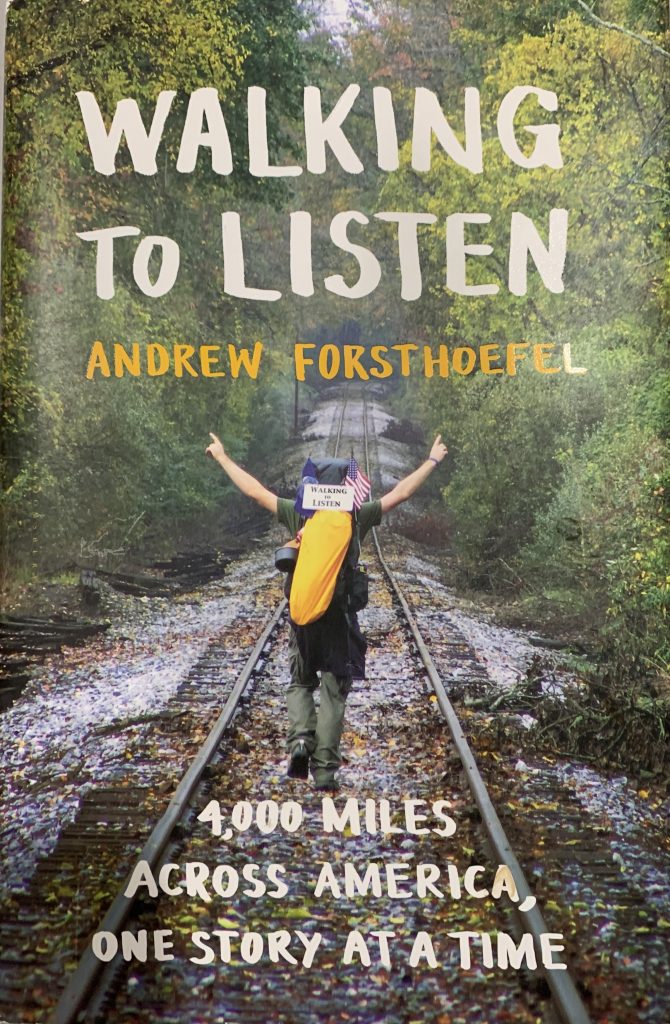Riveting River
Shelby drew my name in the family gift exchange and gave me a charming portrait of myself by grandson Thomas (friends on FaceBook all agree it looks just like me) and two books. This post is about The River by Peter Heller. I read it in less than a day–simply couldn’t put it down. It will take more days to ponder its meaning. The extreme danger the protagonists of this novel face in northern Canada echo the challenges that the heroine of The Great Alone, by Kristin Hannah, meets on the Kenai Peninsula of Alaska. Reading both books within a week made me grateful for my safe, comfortable, joyous Christmas of 2019.
The main characters of The River are Jack from Steamboat Springs CO, where Steve and I visited last September, and Wynn from Putney VT. (In June 1965 I spent three weeks in Putney studying German before embarking on my Experiment in International Living in Austria.) Jack and Wynn meet on the first day of freshman orientation at Dartmouth and quickly bond over their love of literature and the outdoors. Now they have taken leaves of absence from college, first to lead expeditions for the National Outdoor Leadership School and, after earning some money, to fulfill their dream of canoeing to Hudson Bay.
 I can’t find a real river like the one pictured in this book. There is a Maskwa River, but it’s in British Columbia, across the continent from Hudson Bay. Peter Heller has imagined a wondrous river in rich detail: lakesides lush with blueberries, majestic trees, fast-swimming trout, lyrical birds, howling moose, and swift currents of water that crash through noisy falls. Other adventurers attracted to this landscape are not so virtuous as these strong young men who often quote poetry. While Wynn, the artist, is predisposed to optimism and slow to judge the strangers they meet, Jack, the practical engineer, is quick to detect evil intent. Their opposing outlooks remind me of my husband and me on Interstate 95. If our GPS reveals an accident ahead, as it did last night on the way home from Fairchild Gardens, I express the hope that we’ll soon be through it, while Steve is sure that we won’t be home until midnight. Can outlooks affect outcomes? We arrived home at 9:30.
I can’t find a real river like the one pictured in this book. There is a Maskwa River, but it’s in British Columbia, across the continent from Hudson Bay. Peter Heller has imagined a wondrous river in rich detail: lakesides lush with blueberries, majestic trees, fast-swimming trout, lyrical birds, howling moose, and swift currents of water that crash through noisy falls. Other adventurers attracted to this landscape are not so virtuous as these strong young men who often quote poetry. While Wynn, the artist, is predisposed to optimism and slow to judge the strangers they meet, Jack, the practical engineer, is quick to detect evil intent. Their opposing outlooks remind me of my husband and me on Interstate 95. If our GPS reveals an accident ahead, as it did last night on the way home from Fairchild Gardens, I express the hope that we’ll soon be through it, while Steve is sure that we won’t be home until midnight. Can outlooks affect outcomes? We arrived home at 9:30.
Music is an integral part of both men’s lives. Here’s Wynn on page 209:
He heard a loon call, piercing and forlorn, and it poured into his spirit like cool water. It was a sad cry and he realized as he listened how barren the river had felt in the days without it. Why was a wail that seemed so lost and lone so…what? Essential and lovely. It was like the blues, he guessed or like Jack’s cowboy songs. Sad, but somehow you would starve without them.
And where else but on a wild river might you be able to feel one with the Milky Way?
Wynn looked downstream at the course of the sky curving away between walls of living woods. Soon the channel of firmament would pulse with a star, then three, then a hundred, and it would keep filling and deepening until the stars sifted and flowed between the tops of the trees in their own river, whose coves and bends would mirror the one they were on. He had thought it before, and he loved thinking about the two rivers. The river of stars would find its way to its own bay and its own ocean of constellations and Wynn imagined, as he had before, that the water and the stars might sing to each other in a key inaudible, usually, to the human ear. But probably you could hear it. Sometimes. If you quieted the pulse of your own blood. A rhythmic keening at the edge of sound. Wynn thought that if wolves sang, and coyotes, and elk and birds, and wind, and we, too, it was probably in response to a music we didn’t know we could hear.
Now, let me know when you have read The River so that we can discuss it. I’m looking forward to Walking to Listen–Shelby is an excellent gift selector!



Leave a Reply